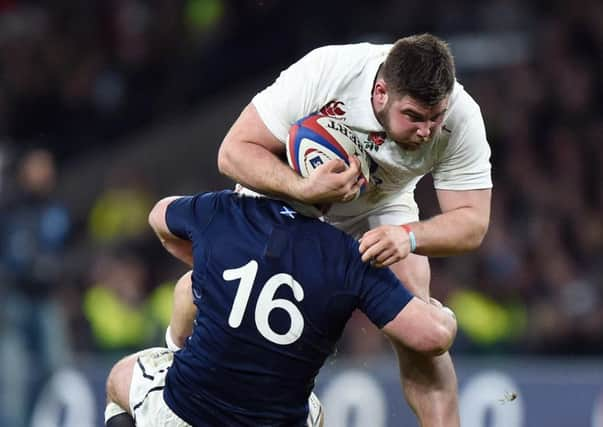Rugby tackling should be banned in schools, say doctors


They warn of a high risk of serious injury among under-18s and said schools should move to touch rugby and non-contact rugby.
In the open letter, which is addressed to ministers, chief medical officers and children's commissioners, rugby is described as a "high-impact collision sport".
Advertisement
Hide AdAdvertisement
Hide AdThe signatories - who include sport scholars, academics, doctors, and public health professionals - said studies show the risks of injuries to under 18s "are high and injuries are often serious".
It said many UK secondary schools deliver contact rugby as a compulsory part of the physical education curriculum from age 11.
"The majority of all injuries occur during contact or collision, such as the tackle and the scrum," the letter said.
"These injuries which include fractures, ligamentous tears, dislocated shoulders, spinal injuries and head injuries can have short-term, life-long, and life-ending consequences for children."
Advertisement
Hide AdAdvertisement
Hide AdThe letter said concussion is a common injury and repeat concussion is most likely among players who have suffered it previously plus there is an association with depression, memory loss and diminished verbal abilities. It also noted that children take longer to recover than adults.
The experts said rugby injuries can "result in significant time loss from school". They criticised the Government's drive to boost participation in rugby in English schools by linking schools with rugby clubs.
Signatory Professor Allyson Pollock from Queen Mary University of London said: "Parents expect the state to look after their children when they are at school.
"Rugby is a high-impact collision sport and given that children are more susceptible to injuries such as concussion, the absence of injury surveillance systems and primary prevention strategies is worrying.
Advertisement
Hide AdAdvertisement
Hide Ad"Children are being left exposed to serious and catastrophic risk of injury.
"As a signatory to the UN Convention on the Rights of the Child, the UK and Irish governments should ensure the safety of rugby, by removing the contact from the children's game in schools."
The Rugby Football Union said that "high quality coaching, officiating, medical support and appropriate player behaviour" would help to reduce the risk of injury.
They also noted the sport in English schools or clubs can be played as either a contact or a non-contact activity.
Advertisement
Hide AdAdvertisement
Hide AdIt said it has provided building blocks to the 15-a-side game, so young players have time to get to grips with the basics before contact is gradually introduced in both schools and clubs from September.
A spokesman said: "This means that full 15-a-side rugby will begin a year later at under 14 and provide a gradual and more managed introduction of the contact game around the tackle will take place from under nine to under 12 instead of over just two years at under nine and under 10 as previously. This will give players, teachers and coaches more time to master the techniques in a safer and more supportive environment."
The RFU has carried out a three-year injury prevention and surveillance study on schoolboy injuries and created a RugbySafe guidance programme to grassroots organisations and players of all levels, the spokesman said.
Professor Russell Viner, of the Royal College of Paediatrics and Child Health, said changes to address safety in school rugby must be given "time to bed in".
Advertisement
Hide AdAdvertisement
Hide AdHe said: "Currently around one in three children aged between two and 15 in the UK are overweight or obese, making it imperative that we make as much effort as possible to encourage more children and young people to take up regular exercise."
The Department for Education said it expects schools to "be aware of the risks associated with sporting activities and to provide a safe environment for pupils."
Stating that team sports can be character-building and help to develop positive traits such as fair play, leadership and resilience, a spokesman said: "PE and sport can help ensure that all young people realise their potential and is an important part of our commitment to preparing children for life in modern Britain."